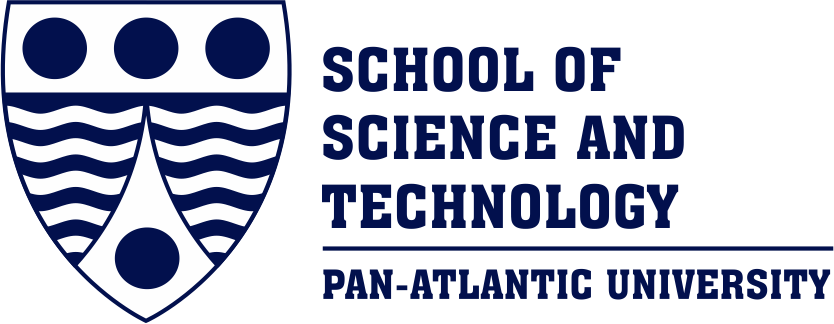M.Sc. in Data Science
The Masters in Data Science seeks to bring knowledge of data analytics closer to business expertise by equipping participants with the ability to draw meaningful insights from wide range of structured, semi-structured and unstructured data, with varied levels of sizes and complexities. Participants will acquire the requisite skills needed to identify, extract, prepare, analyze, interpret and present results, with AI-driven enhancements. In addition, participants will be able to lead the implementation of innovative data science projects in real-world environments, applying the concepts to varied sectors of interest.
The M.Sc. programme in Data Science of the Pan-Atlantic University is informed by the aspiration to train data science professions to bring knowledge of data analytics closer to business expertise by equipping participants with the ability to draw meaningful insights from wide range of structured, semi-structured and unstructured data, with varied levels of sizes and complexities. The participants will be trained to uphold the highest intellectual, ethical and professional values that promote creativity, critical knowledge, social responsibility, and the spirit of enterprise. The programme will prepare students for careers in data science in private and public sectors alike. With the skills students will acquire in this programme, they will be better equipped to improve individual and corporate performance, with the resultant impact on national productivity and economic growth. The Master’s programme is on the one hand, for anyone whose objective is to acquire professional competence in data science, at the service of the industry. On the other hand, it is a pathway to further specialization at doctoral level.
Rationale/Justification
Data science is a dynamic and rapidly growing area in the present society and predictably in the future society where so much tacit knowledge is hidden in the massive amount of data constantly generated from activities, especially those of digital nature. The need for individuals with good data science skills and understanding who can draw meaningful insights from data cannot be overemphasized. This need will continue to grow. The following is an outline of rationale/justification for the Data Science programme:

- We are immersed in data especially those that are result of digital footprints
- Expertise in data science enables the graduate to solve complex, challenging problems.
- Data science jobs are here to stay, regardless of where you are located.
- Expertise in data science helps the graduate even if his/her primary career choice is something else.
- Expertise in data science enables the graduate to solve complex, challenging problems.
- Data science offers great opportunities for true creativity and innovativeness, creating value by drawing meaningful insights from data.
- Data science has space for both collaborative work and individual effort.
- Data science is an essential part of well-rounded academic preparation.
- Future opportunities in data science are without boundaries.
The fundamental aim of the programme is tied to that of the University and it is to form competent and socially responsible data science professionals who are committed to the promotion of the common good of society and the advancement of the data science profession.
Aims/Objectives of the Programme
The vision of the School is to be internationally recognized as a prestigious institution offering high-class education in Science and Technology disciplines; to be a reference point for research in Africa, and a leading training centre for science and technology practitioners. It is expected that the level and high standard of the School will influence positively all other faculties of its nature across the country.
Entry Requirements
- At least hold a bachelor degree in any information science related
discipline. - (HND holders require an additional Postgraduate Diploma in a relevant
field). - Be fluent in English language
Graduation Requirements
The following regulations shall govern the conditions for the award of Master of Science (MSc) degree;
- Candidates should have registered for a minimum of 42 units of courses.
- Candidates must have registered and passed all the compulsory courses
specified for the programme
Minimum number of Earned Credit Hours for graduation:
To graduate, the candidates must have passed a minimum of 30 units (which
must include the compulsory units).
Minimum No. of years for graduation:
One year
For programme overview and course description click to download the brochure:
Plan A:
- Full Tuition Fees: N6, 000, 000
Plan B:
- Three installments as follows:
- First Semester: N2,000,000 (upon admission)
- Second Semester: N2,000,000 (before the start of the second semester in January 2026)
Third Semester: N2,000,000 (before the start of the third semester in May 2026)
Plan C:
- 1st Semester;
- First installment: N1,000,000 (upon admission)
- Second installment: N500,000 (October 2025)
- Third installment: N500,000 (November 2025)
(Same applies for 2nd and 3rd Semester)
There would be 3 Saturdays of online classes every month and one week of intensive (physical classes) every 2 months.



